Green Finance Summit 2025 Agenda
Day One
24th March, 2025
8 AM – 9 AM
Registration
9 AM – 9:05 AM
Welcome
Acknowledge and welcome the presence of distinguished guests, development partners and key stakeholders
– Mr. George Awap, Assistant Governor FSDIG (Bank of PNG)
9:05 AM – 9:20 AM
Greening the Pacific Financial System
Provide an overview of AFD’s work in Greening the Pacific’s Financial System and specifically the work in Papua New Guinea.
– Virginie BLEITRACH, Directrice Régionale Océan Pacifique (AGENCE FRANÇAISE DE DÉVELOPPEMENT – AFD)
9:20 AM – 9:35 AM
Championing Green Finance in PNG
Provide an insight into what Bank of Papua New Guinea has been able to achieve in Sustainable Finance over the last year and what are next strategic steps in order scale climate financing and creating a more resilient financial ecosystem in PNG.
– Governor Elizabeth Genia (Bank of PNG)
9:35 AM – 10 AM
Guest of Honor
Prime Minister of Papua New Guinea, Rt Honorable James Marape (Government of Papua New Guinea)
10 AM -10:45 AM
Green Launch
Guest of Honor with the Governor of Bank of PNG launches the Green Finance Centre Video.
– AFD, BPNG and GGGI sign Letter of Intent to develop and inject initial funding in innovative financial Instruments to scale green lending in PNG
– Press Conference
10:45 AM – 11 AM
Morning Coffee Break
11 AM – 11:05 AM
Moderator
Ali Mohammed Shaikh, Country Representation PNG and Solomon Islands (Global Green Growth Institute)
11:05 AM – 11:20 AM Resilience & Sustainability Facility (RSF)
The IMF established an RSF arrangement with GoPNG. The RSF contributes to long term balance-of-payments stability by supporting policy reforms that reduce risks associated with climate change and pandemic preparedness.
– Nir Klein, Mission Chief for Papua New Guinea (IMF)
11:20 AM – 11:35 AM
Scaling Sustainable Investments in PNG
ADB is developing an Improving Financial Access Sector Development Program for PNG. ADB will discuss how this potentially aid in scaling up sustainable investments/lending in PNG through a policy-based loan (PBL) and a financial intermediary loan which is targeted towards funding the green refinancing facility and/ or the green guarantee facility.
– Andrew C. Mccartney Senior Financial Sector Specialist (ADB)
11:35 AM – 11:50 AM
Green Refinancing Facility (GRF)
The GRF is an initiative under the IGFP Roadmap and supported by BPNG. The objective of the GRF is to incentivize and scale up the volume of inclusive or green loans in Papua New Guinea, aligning with the country’s Inclusive and Green Taxonomy
– Thierry F. Mahieux, Lead Consultant for GRF
11:50 AM – 12:05 AM
Green Guarantee Facility (GGF)
Provide an insight on how a GGF will aid financial institutions in de-risking yet scaling up sustainable loan portfolio.
– Wycliffe Nqwabe, Country Lead and Lead Technical Specialist, PNG (United Nations Capital Development Fund)
12:05 PM – 12:15 PM
Moderator
Papua New Guinea has developed its Inclusive Green Finance Policy, which is supported by a comprehensive Diagnostic Report on the financial sector, an Inclusive Green Taxonomy, and a detailed Implementation Roadmap to guide the policy’s rollout and integration across the financial system.
– Mohinesh Prasad, Head of Green Finance Centre (GFC)
12:15 PM – 12:30 PM
Inclusive Green Finance Policy
The Alliance for Financial Inclusion (AFI) has been a key member of the Inclusive Green Finance (IGF) Project Steering Committee since its inception and has played a pivotal role in the development of Papua New Guinea’s Inclusive Green Finance Policy. AFI will share its perspectives on the importance of such a policy in ensuring that central banks take an inclusive approach in building a climate-resilient financial ecosystem—one that leaves no one behind, particularly vulnerable populations most affected by climate change.
– Dr. Eliki Boletawa, Director Policy & Programs (AFI)
12:30 PM – 12:45 PM
Developing next version of the Inclusive Green Taxonomy
International Finance Corporation is supporting GFC to develop the Technical Screening Criteria (TSC) for the Inclusive Green Taxonomy. IFC will provide an insight on the importance of developing the TSC and its approach and timelines.
– Sameer Chand, Operations Officer (IFC)
12:45 PM – 1:15 PM
Experience and Knowledge Sharing
Australia and New Zealand are both in the process of developing their respective Green Taxonomies. The Australian Sustainable Finance Institute (ASFI) and the Centre for Sustainable Finance – New Zealand (CSF-NZ) will share insights from their journeys, highlighting key lessons learned in the development of their taxonomies. A particular focus will be placed on the critical role of market consultations in ensuring that Green Taxonomies are practical, inclusive, and aligned with national priorities and market realities.
– Ben Sakker Kelly, International Sustainable Finance Program Manager (ASFI)
– Nigel Gormly, Director Programs (SFC–NZ)
1:15 PM – 2:15 PM
Lunch Break
2:15 PM – 2:20 PM
Moderator
As a pilot initiative, GFC has, over the past year, been working closely with five financial institutions to integrate the Inclusive Green Finance Policy into their lending operations. This collaboration has included conducting tailored needs assessments for each institution, providing technical support to tag existing portfolios as green, and assisting in the development of new sustainable loan products. Each financial institution is at a different stage in its sustainable lending journey, reflecting varying levels of capacity, readiness, and strategic alignment with green finance principles.
– Mr. Mark Baker – Board Member (Bank of PNG)
2:20 PM – 2:35 PM
Bank of South Pacific (BSP)
BSP as Papua New Guinea’s largest bank and the leading financial institution across the Pacific region, holds a dominant position in retail banking. Recognizing its pivotal role in the region, BSP has developed an Environmental, Social, and Governance (ESG) Framework and is currently collaborating with GFC to tag and identify green loans within its existing portfolio. Given the high vulnerability of Pacific Island countries to climate-related disasters, it is critical for BSP to effectively mitigate climate-related lending risks. As the region’s largest bank, BSP’s leadership in sustainable finance is essential to building resilience and supporting the transition to greener economies across the Pacific.
– Mr. Mark Robinson, CEO (BSP)
2:35 PM – 2:50 PM
Australia & New Zealand Bank PNG (ANZ)
ANZ has been advocating to it PNG customers and key stakeholders about their transition to net zero, including the importance of identifying climate and nature risks and opportunities, emission reduction target-setting, transparent reporting and transition planning. ANZ Sustainable Finance offers a range of funding products including Sustainability-Linked loans, green loans and green guarantees. ANZ seeks to transition its lending portfolio to net zero financed emissions by 2050 in line with the goals of the Paris Agreement. The bank has set a global target to fund and facilitate at least $100 billion in social and environmental activities through customer transactions and direct investments by end 2030.
– Mr. James Ellerman, Director Resources, Energy and Infrastructure (ANZ)
2:50 PM – 3:05 PM
Kina Bank PNG
Kina Bank, the second-largest retail bank in Papua New Guinea, is actively expanding its SME lending portfolio, aligning closely with the objectives of Inclusive Green Finance by focusing on the development of sustainable loan products tailored for the SME sector. As a dual-listed entity on the PNGX and ASX, Kina Bank has already implemented robust Environmental, Social, and Governance (ESG) policies, which are integrated into its credit assessment processes and guide lending decisions to ensure alignment with responsible and sustainable financing practices.
– Mr. Ivan Vidovich, CEO and Managing Director (Kina Bank
3:05 PM – 3:20 PM
Nationwide Micro Bank (MiBank)
MiBank has developed a range of green and blue loan products aimed at supporting environmentally and socially responsible initiatives. While these innovative loan products are being piloted in the market, their scalability remains limited due to constraints in financial support. MiBank continues to trial and refine these offerings, demonstrating strong commitment to inclusive and sustainable finance, particularly for underserved and remote communities.
– Mr. Trudi Egi, CEO (MiBank)
3:20 PM – 3:35 PM
Women’s Micro-Bank (Mama Bank)
Over the past five years, Mama Bank has steadily expanded its balance sheet and operational footprint. Today, the bank operates in 11 provinces with over 17 branches, serving a customer base of more than 130,000, of which 80,000 are active, and 90% are women. In the past year alone, Mama Bank extended loans to 10,000 customers. As part of its commitment to inclusive and sustainable finance, Mama Bank has been working with the GFC to develop and pilot green and blue loan products over the last six months. Notably, some of the most promising results have come from agriculture value chain financing, supporting rural livelihoods and climate-resilient practices.
– Mr. Gunanidhi Das, CEO (Mama Bank)
3:35 PM – 3:50 PM
Developing ESG and ESMS Guidelines in PNG
The IFC has been collaborating with the BPNG via GFC on sustainable finance initiatives. In April 2024, BPNG joined the IFC-supported Sustainable Banking and Finance Network (SBFN), which includes 96 member institutions from 72 emerging market countries. BPNG is dedicated to enhancing environmental, social and governance (ESG) standards, with policy objectives to deepen insights into climate resilience and inclusive green growth in PNG. These guidelines provide a robust foundation for financial institutions to manage the environmental and social (E&S) risks and impacts of their financing activities.
– Rahajeng Pratiwi, Operations Officer (IFC)
3:50 PM – 4:05 PM
ESG Case Studies – AFD
The Agence Française de Développement (AFD) Group plays a key role in implementing France’s international development and solidarity policy, working across areas such as climate, biodiversity, peace, education, urban planning, health, and governance. Given AFD’s extensive footprint in the Pacific region, they will share valuable insights and experiences in developing Environmental, Social, and Governance (ESG) Guidelines tailored to the context of Papua New Guinea and the Pacific. These case studies will highlight practical approaches, challenges, and lessons learned in mainstreaming ESG principles in public and private sector institutions.
– Huihui Zhou, ESG Specialist for the South East Asia Region (AFD)
4:05 PM
Close Day Session
Day Two
25th March, 2025
10:30 AM – 9:00 AM
Welcome & Networking Session
9:00 AM – 9:45 AM
Chat Fire Session
– Advancing Sustainable Energy Through Green Finance in Papua New Guinea
– David Toua, Chairman Bank of Papua New Guinea
– Hon. Thomas Opa, Minister for Energy
9:45 AM – 10:00 AM
Coffee Break
10:00 AM – 11:30 AM
Coordinating Green Policies
In this session, senior representatives from key government agencies will share
their strategic priorities for climate change financing. They will also outline how
they envision collaboration with the Bank of Papua New Guinea, through the
Green Finance Centre, to support the development of resilient infrastructure.
(7mins each)
– Ms. Roddie Wada, First Assistant Secretary Policy and Markets – Department of Treasury
– Ms. Debra Sungi, Acting MD – Climate Change Development Authority
– Mr. Ronald Mekete, Managing Director – National Energy Authority
– Mr. Heai Hoko Steven, Deputy Secretary – Department of Agriculture &Livestock
– Mr. Koney Samuel, Secretary – Department of National Planning & Monitoring
– Mr. James Joshua, CEO – Securities Commission PNG
– Jude Tukuliya, Acting Managing Director – Conservation & Environment
Protection Authority
– Mr. John Mosoro, Managing Director – National Forestry Authority
11:30 AM – 12:45 PM
Sustainable Development – Perspectives from International Partners
Moderator: Mr. Geroge Awap – Ast. Governor, Bank of PNG
This session will feature distinguished representatives from key international
development partners who will share their perspectives and priorities on
sustainable development. The discussion will highlight opportunities for
collaboration in advancing inclusive green growth and climate-resilient
development in Papua New Guinea.
– Mr. Thomas Helbling, Deputy Director Asia-Pacific Department – IMF
– Elvira Morella, Manager Country Advisory and Economics – EAP – IFC
– Mr. Said Zaidansyah – Country Director, PNG Resident Mission – ADB
– Mr. Nicholas Booth, UNDP and UNCDF Resident Rep (UNDP)
– Dr. Cate Rodgers, Minister Counsellor for Economics, Health, and
Infrastructure – Australian High Commission / DFAT
12:45 PM – 1:45 PM
Lunch Break
1:45 PM – 3:00 PM
Private Sector opportunities will thrive green growth
Moderator: Global Green Growth Institute
– Private Sector Video on sustainable agriculture
– Case Study 1 – Steamships Sustainable Ambitions
– Case Study 2 – Togoba Coffee – Tree to Cup
– Case Study 3 – Opportunities in Parametric Insurance (UNCDF)
– Case Study 4 – Clarmondial, a swiss independent advisory firm focused
on promoting the sustainable management of natural resources
3:00 PM – 3:15 PM
The Next One Year in Sustainable Finance for Papua New Guinea
In this closing session, the Governor of the Bank of Papua New Guinea will reflect
on key takeaways from the two-day Green Finance Summit. She will also share
her vision and outline the Bank’s next steps to scale up sustainable lending and
strengthen climate resilience within the national financial system.
Mrs. Elizabeth Genia, Governor for Bank of PNG
3:15 PM – 3:20 PM
Vote of Thanks
Mohinesh Prasad, Head of Green Finance Centre
3:30 PM – 4:30 PM
Networking and Cultural Performance at Amphitheatre
Day Three
26th March, 2025
Closed Session – scaling up climate finance
8:30 AM – 9 AM
Welcome Remarks
9 AM – 10:30 AM
Strategic priorities for climate change financing and sustainable development
10:50 AM – 12:50 PM
Options for Scaling CF
12:50 PM – 1:15 PM
Closing
Endorsed by
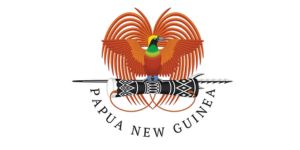
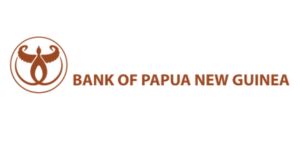
Funded by
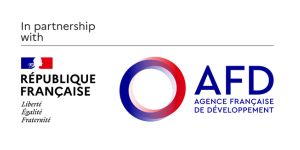
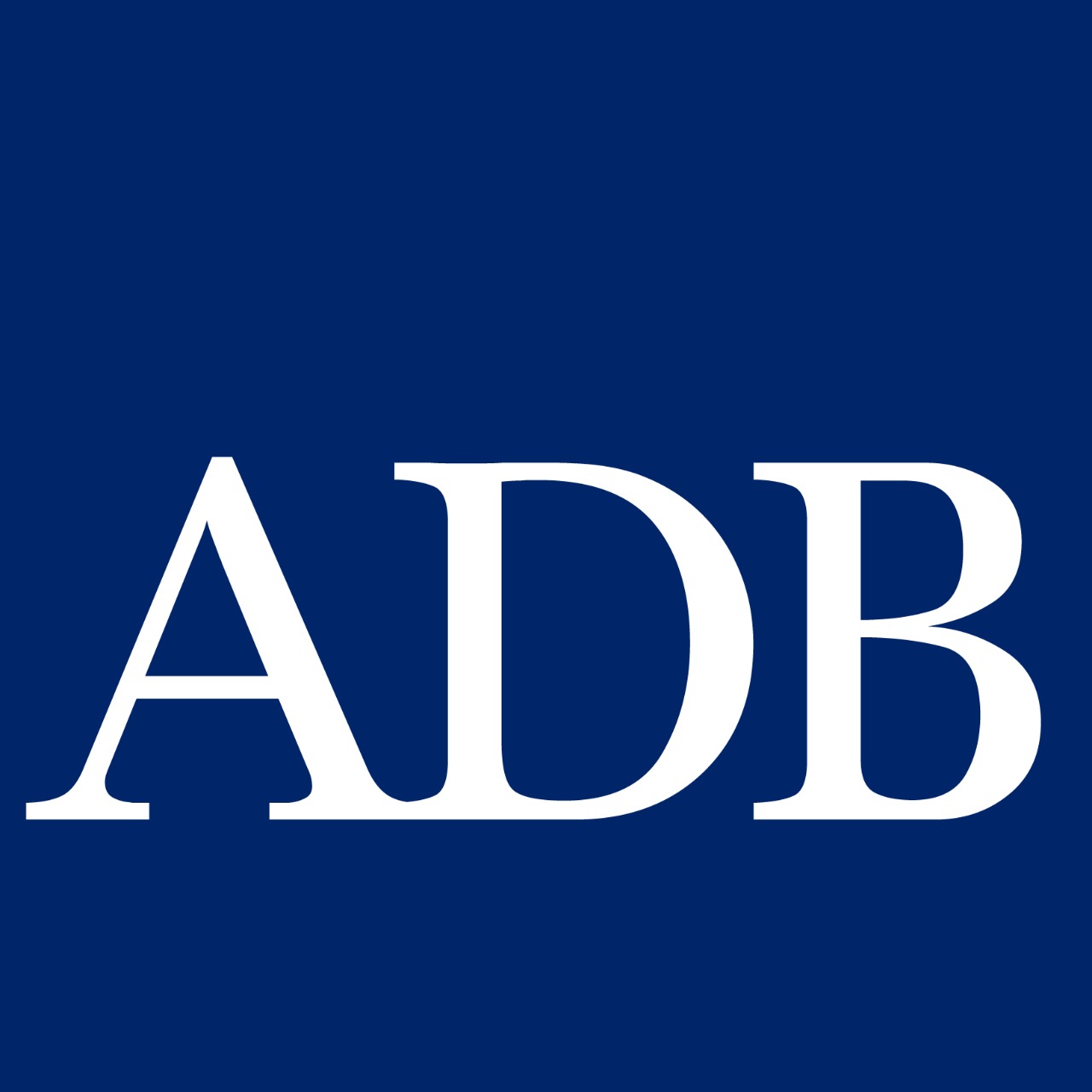
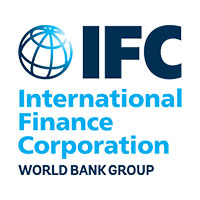
Supported by







